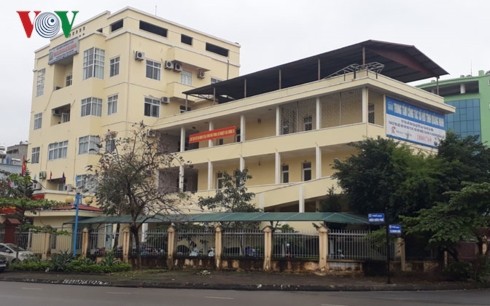
The so-called peaceful house for vulnerable children and women is located on the fourth floor of Quang Ninh province’s Social Work Center. (Photo: Vu Mien/VOV.VN)
|
Tran Thanh Thuy, head of the Economic Section of the Quang Ninh provincial Women’s Union, has been a coordinator for the so-called “peaceful house” for a decade. She said women with serious physical and emotional damage often fall into depression and sometimes want to commit suicide. After they join the peaceful house, they gain the confidence to rebuild their lives.
Thuy says that although such a house is practical and efficient, its operating costs come from sponsorships which ended 4 years ago.
“The women who come to the shelter housing share the feeling that it’s a place where they can safely talk about their painful experiences. They change their way of thinking and get more confident about making those decisions that affect their lives and happiness,” Thuy said.
The Ministry of Labor, Invalids, and Social Affairs (MOLISA) and the Korean International Cooperation Agency (KOICA) chose Quang Ninh to test a model for responding to and preventing violence against women and girls in Vietnam.
Headquartered at Quang Ninh province’s Social Work Center, the project will provide medical exams, emotional counseling, legal support, and long-term residences for female victims of domestic violence.
Doan Thiet Dung, the Center’s Deputy Director, said: “The project in Quang Ninh is important. This model has been used in districts where we offer counseling and provide vulnerable women with a means of subsistence. We hope the project will be put into operation in many places so we can support a larger number of vulnerable women and girls who are victims of sexual and domestic violence.”
The Gender Equality Department of the Ministry of Labor, Invalids, and Social Affairs plans to help all 63 provinces and cities to implement the shelter housing model.
Le Thi Phuong Thuy, head of the counseling section of the Center for Woman Development of the Vietnamese Women’s Union, said: “Helping victims build a new life requires people who are devoted and responsible about saying no to violence.”
The model demonstrates the Vietnamese government’s commitment to gender equality and violence prevention